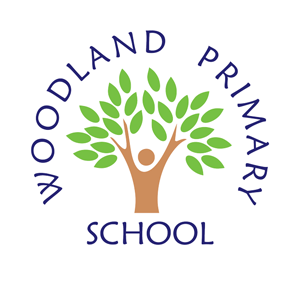Subject area: Computing
Curriculum Intent Statement for Computing
Technology and computers are an essential part of life in the 21st century and therefore computing is a prominent part of the curriculum at Woodland. We teach our children to analyse and logically organise data, formulate problems that computers may assist with identifying, testing and implementing possible solutions, algorithmic thinking and applying these key skills to other problems. Understanding and using the internet is a key skill for children so we feel that it is essential to educate them on how to stay safe, maintain their personal identity and act responsibly when online.
Aims of our Computing Curriculum
The computing curriculum will:
- equip pupils to use computational thinking and creativity to understand and change the world.
- make deep links with mathematics, science and design and technology, and provides insights into both natural and artificial systems.
- teach the principles of information and computation, how digital systems work and how to put this knowledge to use through programming.
- build on this knowledge and understanding to ensure pupils are equipped to use information technology to create programs, systems and a range of content.
- enable pupils to become digitally literate – able to use, and express themselves and develop their ideas through, information and communication technology – at a level suitable for the future workplace and as active participants in a digital world.
Download further information below:

Positive Environment: The school’s environment fosters respect and support among pupils and staff. Pupils are encouraged to develop good manners and social skills, contributing to a positive school culture.

Safeguarding: The school has effective safeguarding measures in place. Staff are well-informed and confident in identifying and addressing potential risks to pupils. Pupils are knowledgeable about staying safe, particularly online.

Personal Development: Pupils are encouraged to be independent from an early age and take care in presenting their work. They enjoy participating in various clubs and activities, including sporting competitions and educational visits.

Behaviour and Attitudes: Pupils exhibit respectful relationships with adults and move around the school sensibly. They are confident in seeking help from staff if needed, and bullying is rare. Pupils listen attentively to teachers and engage in class discussions.

Overall Effectiveness: The school was rated ‘Good’ in all categories, including quality of education, behaviour and attitudes, personal development, leadership and management, and early years provision.

Quality of Education: Pupils receive strong support in learning to read quickly and achieving well. The curriculum is well-planned and effective, particularly in the early years and mathematics. Teachers and teaching assistants are well-trained and provide clear explanations and encouragement.

Support for SEND: Pupils with special educational needs and/or disabilities (SEND) are quickly identified and well-supported, achieving good outcomes as a result.

Leadership and Ambition: School leaders are noted for their ambition and effective work in improving the school. Their efforts have resulted in a good quality of education for the pupils.

